
Essays About Gratitude: Top 5 Examples and 7 Writing Prompts
Writing essays about gratitude is a way to show appreciation and recognize kindness. See our top examples and prompts you can use as a guide for your essay.
I’m not outspoken, and everyone close to me knows this. However, this one time, a family friend visited us and gave me a set of paintbrushes for my birthday. I thanked them, but that didn’t feel enough as they went out of their way to pick high-quality brushes and deliver them in person, even if we weren’t close. That kind lady wanted me to pursue my interest in painting, and I have felt grateful to her ever since.
For those like me who can’t fully express gratitude through words, it becomes an intimidating task to even write about it. After all, essays about gratitude require finesse and sincerity that are hard to prove through pen and paper.
5 Essay Examples
1. the expression of gratitude by writer rosalyn, 2. a good life is a gratitude, meaning, and love by anonymous on ivypanda.com, 3. the magical power of gratitude and saying ‘thank you’ by anonymous on gradesfixer.com, 4. essay on gratitude by anonymous on toppr.com , 5. meaning and importance of gratitude by anonymous on mystudentsessay.com, 1. the true meaning of gratitude, 2. expressing gratitude, 3. the benefits of practicing gratitude, 4. culture and gratitude expression, 5. values and gratitude, 6. the boundaries of gratitude, 7. practicing gratitude: a day in my life.
“… Participants who expressed gratitude in a close relationship would have greater relationship satisfaction than those who did not express gratitude.”
The essay contains a compilation of information from various studies to discuss the effect of expressing gratitude verbally. Rosalyn discovers that the rate of relationship satisfaction increases after expressing gratitude and leads to lasting relationships and reduced divorce rates.
Rosalyn notes how expressions of gratitude act as positive reinforcement, encouraging the recipient to be more inclined to agree to do favors. For instance, many sellers include gifts and discounts with purchases to express gratitude and cultivate repeat buyers.
“… A good life is a complex term with different meanings, but all the interpretations have a particular point in common – well-being is associated with gratitude, meaning, and love.”
The author defines the “good life” as spiritual contentment and shares their opinion and experiences as a clinical mental health counselor. They remark that gratefulness can signify healthy well-being since it means an individual is intent on what they have instead of what they don’t. Further, people filled with gratitude can find meaning in life in time and with practice.
The counselor also mentions the importance of having someone who truly loves and cares for us to remind us to be grateful even in the darkest times of our lives. In conclusion, the writer reiterates that it’s complicated to define what a good life entails, but all definitions directly connect to gratitude, meaning, and love.
“I discovered a secret about life, and as a result of my discovery, one of the things I began to do was practice gratitude each day, to say “thank you!” more. As a result of this, everything in my life changed, and the more I practiced gratitude, the more miraculous were the result.”
To demonstrate the positive benefits of feeling and expressing gratitude, the author narrates their experiences in this short essay. They talk about their financial, relationship, and health problems and how they were all resolved when they started to be grateful. The writer considers this magical, but a change in their perception helped them overcome their problems.
“… Gratitude is the most essential human expression which proves that humans are sensible and have emotions. Moreover, this emotion does not just limit to humans but also animals. Often, we see them express their gratitude and return the favour.”
In this essay, the author identifies gratitude as a beautiful way of enriching our existence. It’s a vital skill that every person should learn and practice to invite goodness and get various benefits, such as stronger relationships and a happier outlook. The writer believes it’s crucial to always express gratitude to inspire others and remember that humans are emotional beings.
“Gratitude leads to feelings of happiness and satisfaction as it increases awareness that others have done something nice for you. As a result, gratitude and happiness become mutually reinforcing and build upon each other. Science shows that gratitude is a particular emotion, since it consists of a feeling of appreciation that does not require specific objects or actions which instigate it.”
This essay focuses on the importance and benefits of practicing gratitude which the author refers to as “the greatest gift to humanity.” Gratitude is vital as it helps us recognize positive and negative things to assist us in finding meaning and purpose in life. The author states that practicing mindfulness and meditation brings about gratitude that will improve various aspects of one’s life.
7 Prompts for Essays About Gratitude

Gratitude is one of the most salient topics to write about and discuss. It’s a positive emotion we feel whenever we receive something that demonstrates the giver’s sincerity. Use this prompt to discuss the meaning of gratitude with your readers in two ways. First, explain its definition according to dictionaries and experts. Then use your personal experiences to illustrate what gratitude means to you.
“Thank you!” is a simple but effective phrase to express appreciation to those who try to improve your day. For this prompt, list more ways to express gratitude through verbal communication or actions. Add tips on showing gratitude while considering important factors such as the event or context, relationship to the recipient, and suitability of the method.
Focus your essay on the advantages one can get from practicing gratitude; use this prompt to encourage your readers to acknowledge the good things happening to them. Provide relevant research and examples that show the benefits of demonstrating gratitude.
For help with this topic, read our guide explaining what is persuasive writing .

The environment an individual grows up in plays a big part in how they express gratitude. Explore different cultures worldwide and discuss how beliefs, religion, and culture can affect how groups display gratefulness. Show your reader’s how different cultures communicate gratitude, including the common reasons they do so. Then, share how you were taught to convey gratitude in your culture.
Exercising gratitude trains us to establish positive values such as enthusiasm and optimism. Use this prompt to identify and discuss the values one can gain from learning about gratitude. Discuss the values you developed while practicing gratitude to make your essay relatable. You might also be interested in these essays about overcoming challenges .
Although gratitude is one of the most positive emotions we can experience, it should still be practiced within healthy boundaries. Such limitations should be applied when a person develops extreme beliefs involving gratitude. An example is over-optimism, where an individual becomes unrealistically optimistic to the point that they ignore the existence of their problems. In your essay, discuss how to practice gratitude in a way that positively influences your life.
In this essay, reflect on a typical day in your life and highlight the parts that make you feel thankful. This prompt will help you appreciate the trivial things in your life and teach your readers how to treasure even the minor things in their lives. For example, having the opportunity to wake up and live another day already deserves your gratitude. Discuss all the things that you are grateful for in this heartfelt essay.
Take your essay to the next level with the best essay checkers .

Maria Caballero is a freelance writer who has been writing since high school. She believes that to be a writer doesn't only refer to excellent syntax and semantics but also knowing how to weave words together to communicate to any reader effectively.
View all posts
Gratitude Essay
500 words essay on gratitude.
Gratitude is a beautiful way of enriching our lives. It refers to the feeling and attitude of appreciation and thankfulness for the good which we receive in life. It has been proven scientifically that when we express our gratefulness to other people, we feel happier and calmer. Thus, it allows goodness to enter our lives. For instance, when a stranger holds the door for you or greets you, it makes you feel happy. Thus, a gratitude essay will teach us how advantageous gratitude is.

Advantages of Gratitude
Gratitude can have a lot of advantages to our personal as well as social life. First of all, it strengthens our relationship with others. When you have a thankful feeling, it will strengthen the bond with the other party and enhance the trust factor and feeling of respect and love .
Moreover, it also makes us happy. When we express gratitude or receive it, we feel happy either way. As a result, people who have gratitude do not stress out a lot. Similarly, being full of gratitude makes society sensible.
In other words, people become considerate and never leave a chance to say thank you to others. Thus, it helps society to progress in the right direction with the right tools needed for the development of it.
Most importantly, gratitude reduces comparisons and promotes acknowledgement. When we become thankful, we do not compare ourselves to others. Thus, it helps us acknowledge our own achievements and blessings and remain content.
How to Practice Gratitude
There are a lot of ways through which we can practice gratitude. Some of the most effective ones include making a note of every good thing which happens to us every day. Moreover, also note the people behind it.
This will help you to return the favour at an appropriate time. Never forget to return this favour as they deserve it too. Moreover, always make sure to appreciate everything in life ranging from nature to animals .
We are lucky enough to have animals, green plants, fresh air and much more. Thus, never stop acknowledging the importance of these essential things. Moreover, always remember to say thank you to different community helpers.
It can be anyone, whether your gardener or sweeper or even the police officers. Make sure you thank them for their service whenever it is possible for you. Remember that to wake up every day is no less than a blessing itself.
So, make sure to be grateful for a new day and thank the almighty for making you wiser and stronger with each passing day. Most importantly, try to avoid complaining about things when they don’t go your way. You don’t know about the blessing behind it.
Get the huge list of more than 500 Essay Topics and Ideas
Conclusion of Gratitude Essay
All in all, gratitude is the most essential human expression which proves that humans are sensible and have emotions. Moreover, this emotion does not just limit to humans but also animals. Often, we see then express their gratitude and return the favour. Thus, we must always express our gratitude.
FAQ of Gratitude Essay
Question 1: Why is gratitude important?
Answer 1: Gratitude is strongly and constantly connected with greater happiness. It is what helps people feel more positive emotions, appreciate good experiences, advance their health, deal with adversity, and build strong relationships.
Question 2: How can gratitude change your life?
Answer 2: Gratitude can change your life as it makes you appreciate what you have rather than what you don’t have. It can change your life because it is the single most powerful source of inspiration that any individual can tap into if they simply stop and pay attention to the simplistic beauty and miracle of life.
Customize your course in 30 seconds
Which class are you in.

- Travelling Essay
- Picnic Essay
- Our Country Essay
- My Parents Essay
- Essay on Favourite Personality
- Essay on Memorable Day of My Life
- Essay on Knowledge is Power
- Essay on Gurpurab
- Essay on My Favourite Season
- Essay on Types of Sports
Leave a Reply Cancel reply
Your email address will not be published. Required fields are marked *
Download the App

- Entertainment
- Environment
- Information Science and Technology
- Social Issues
Home Essay Samples Life
Gratitude Essay Examples
An essay on gratitude can be an excellent opportunity to reflect on the things in life that we often take for granted. It’s a chance to acknowledge the people, experiences, and things that have made a positive impact on our lives. If you’re struggling to get started, here are some gratitude essay examples and tips to help you craft a perfect essay on gratitude.
One way to approach an essay on gratitude is to reflect on specific instances where you’ve experienced gratitude in your life. For example, you might write about a time when someone went out of their way to help you or when you received unexpected kindness from a stranger. These examples can help you illustrate the power of gratitude in our lives and show how it can change our perspective on the world.
Another approach is to write about the benefits of gratitude. Research has shown that practicing gratitude can improve mental health, boost happiness, and even enhance physical health. You can explore these benefits in your essay and provide examples of how you’ve experienced them in your own life.
If you’re a college student, consider writing a gratitude college essay. In this essay, you can reflect on how college has shaped you and the opportunities it has provided. You might write about a professor who inspired you or a project that challenged you in new ways. By expressing gratitude for your college experience, you’ll be able to showcase your growth and appreciation for the opportunities you’ve had.
Overall, an essay on gratitude can be a powerful tool for personal growth and reflection. By exploring gratitude in your life, you’ll be able to recognize the good things that are often overlooked and find ways to cultivate more gratitude in your daily life. Use the gratitude essay examples and tips above to craft a perfect essay on gratitude and let your gratitude shine through your words.
The Power Of Gratitude In Our Lives
People who know how to express gratitude externally and internally are healthier people who enjoy their well-being because they work their positive emotions. Let's see it in more depth in this article. 1. Gratitude is not only for good times People tend to fall into...
- Cardiovascular System
- Positive Psychology
Being Thankful And Expressing Gratitude
Gratitude is the feeling of being thankful to those who have made efforts for our own work. Gratitude is an emotion that occurs after people receive help, depending on how they interpret the situation. Specifically, gratitude is experienced if people perceive the help they receive...
- Thankfulness
Gratitude: Knowledge of Giving Thanks in Life
To take things for granted is a very human attitude. In general, it is difficult for us to appreciate what we are used to. There is a mechanism in us that makes us live, unconsciously, with great greed for novelty. Yes, as soon as this...
- Personal Growth and Development
Gratitude and the Act of Giving on Valentine's Day
Valentine's Day is a day that shows people we love, values love, relationships and reading. Valentine's Day is a day to show people who care about our important words and actions. mean something! We all know that Valentine's Day is a day to exchange cards...
- Forgiveness
- Valentines Day
Thank You Day: Remembering the Feeling of Gratitude
The 'Thank you day' takes place all over the world on the eleventh of january. This unique day reminds us to demonstrate our thankfulness to those people whose presence in our lives is perfectly meaningful. There exist many people in our life, but there are...
Stressed out with your paper?
Consider using writing assistance:
- 100% unique papers
- 3 hrs deadline option
How Can the Virtue of Gratitude Enchanse Your Career Growth
Do you remember the time when you wished for something you dearly wanted and you achieved it without any delays? It could have been a dress you had been hunting for. Or, a book you had been yearning to buy and read. Or, a vacation...
- Personal Qualities
What Practicing Gratitude Taught Me
I had never realized how lucky I am, and the power that I have to motivate others until I practiced gratitude. The exercise involved being grateful to myself, and showing gratitude to others every day, even for the simplest things. By the end of the...
How the Power of Gratitude Can Change Your Life
To have a healthier heart we must relax and learn to value the little things and value what we have in its rightful measure. Lao Tzu left us a phrase that should make us reflect: 'gratitude is the memory of the heart'. The power of...
Living with Gratitude: Opening the Door for Self-Improvement
Gratitude Living: More often than not, we find ourselves going through life with a lot of anxiety, stress, sadness and hurt and mostly for things that are beyond our control. In the present world, it seems that we are all in a craze to achieve...
Best topics on Gratitude
1. The Power Of Gratitude In Our Lives
2. Being Thankful And Expressing Gratitude
3. Gratitude: Knowledge of Giving Thanks in Life
4. Gratitude and the Act of Giving on Valentine’s Day
5. Thank You Day: Remembering the Feeling of Gratitude
6. How Can the Virtue of Gratitude Enchanse Your Career Growth
7. What Practicing Gratitude Taught Me
8. How the Power of Gratitude Can Change Your Life
9. Living with Gratitude: Opening the Door for Self-Improvement
- Career Goals
- Personality
- Perseverance
- Personal Experience
- Foster Care
- Overcoming Challenges
Need writing help?
You can always rely on us no matter what type of paper you need
*No hidden charges
100% Unique Essays
Absolutely Confidential
Money Back Guarantee
By clicking “Send Essay”, you agree to our Terms of service and Privacy statement. We will occasionally send you account related emails
You can also get a UNIQUE essay on this or any other topic
Thank you! We’ll contact you as soon as possible.
Common Application Essay Option 4—Gratitude
Tips and Strategies for the 2021-22 Common App
- Essay Samples & Tips
- College Admissions Process
- College Profiles
- College Rankings
- Choosing A College
- Application Tips
- Testing Graphs
- College Financial Aid
- Advanced Placement
- Homework Help
- Private School
- College Life
- Graduate School
- Business School
- Distance Learning
- Ph.D., English, University of Pennsylvania
- M.A., English, University of Pennsylvania
- B.S., Materials Science & Engineering and Literature, MIT
One major change to the Common Application in the 2021-22 admissions cycle is the addition of a new essay prompt. Option #4 now reads, "Reflect on something that someone has done for you that has made you happy or thankful in a surprising way. How has this gratitude affected or motivated you?"
This new prompt replaces the earlier question about solving a problem : "Describe a problem you've solved or a problem you'd like to solve. It can be an intellectual challenge, a research query, an ethical dilemma--anything that is of personal importance, no matter the scale. Explain its significance to you and what steps you took or could be taken to identify a solution." Keep in mind that colleges and universities still want to learn about students interested in solving significant problems, and you still have the "Topic of Your Choice" option if you feel your essay would fit well under the former option #4.
According to Common App , the new prompt serves a couple purposes. First, it replaces a prompt that wasn't very popular among college applicants. More importantly, it gives applicants the opportunity to write about something positive at a difficult time in world history. Rather than write about significant problems, challenges, and anxieties, the new prompt #4 invites you to share something heartfelt and uplifting.
The Importance of Gratitude and Kindness
During the college application process, it's easy and tempting to focus entirely on your personal accomplishments: good grades, challenging AP courses, leadership experiences, athletic ability, musical talent, and so on. Even community service can sometimes come across as focused on your self—hours spent to bolster your application credentials.
Gratitude, however, is a largely selfless feeling. It's about your appreciation for someone else. It's recognizing that your growth and success wouldn't be possible without others. When you express gratitude, you aren't saying "look at me!" Rather, you are appreciating those who have helped you become you.
The folks at Common App have expressed that the new prompt allows students to write about something positive. This is true, but the prompt serves a bigger purpose in the admissions selection process. Highly selective schools end up rejecting thousands of well-qualified applicants, and those decisions will often come down to questions of character rather than GPA and SAT scores.
Think of it this way: when a college is choosing between two students who are academically strong and impressive on the extracurricular front, they will choose the student who seems to be the most kind and generous. Admissions officers are building a campus community with their admissions decisions, and they want to create a community filled with students who appreciate others, build each other up, and recognize the contributions of peers, staff, and professors. They want to admit students who will be kind roommates, collaborative lab partners, and supportive team members.
Chris Peterson, an assistant director of admissions at MIT, wrote a blog post in which he identified three essential qualities for getting into one of the world's most selective schools: do well in school, pursue your passion, and be nice. He notes that this last quality "cannot be overstated." MIT is not a Common Application member, but the point applies perfectly to the value of prompt #4. A winning essay doesn't say "me, me, me!" It shows that you are not only an accomplished person, but also someone who knows how to say "thank you."
Breaking Down the Essay Prompt
Before crafting your essay on prompt #4, it's essential to understand everything that the prompt is asking you to do as well as what it is not asking. The prompt is just 28 words long:
Reflect on something that someone has done for you that has made you happy or thankful in a surprising way. How has this gratitude affected or motivated you?
The prompt has several important elements to consider.
"Reflect"
The very first word in the prompt is one of the most significant. "Reflect" means much more than "write about" or "describe." When you reflect on something, you look inward and reveal self-awareness. You employ critical thinking skills to explain why something is important. Reflection is an act of self-discovery as you examine what you have learned and why it was meaningful.
Here's a quick example:
Unreflective writing: Coach Strauss always taught the team the value of hard work. We practiced hours every day regardless of the weather. The coach's strategy paid off when we won the state championship. The effort we put in wasn't always enjoyable, but the team's success showed that the path to success requires sacrifices.
Reflective writing: I used to resent those miserable and seemingly endless soccer practices in the rain or even snow. Looking back, I now recognize the value of what Coach Strauss was teaching the team. To succeed, we need to work through small obstacles. We need to persevere even when motivation is hard to find. We need to recognize that we always have room for improvement, and we need to support each other as we work towards that goal. I can now see that her lessons were about much more than soccer, and thanks to her I am not just a better athlete, but a better student, peer, sister, and community member.
The first example describes the writer's soccer experience. Nothing in the passage looks inward to analyze the importance of Coach Strauss to the writer's personal awareness and development. The second passage succeeds on this front—it expresses gratitude for Coach Strauss and the way that her lessons helped the writer grow.
"Something" and "Someone"
A nice feature of the Common Application is that all of the essay prompts are designed to give you a lot of latitude in how you respond. The words "something" and "someone" in the new prompt #4 are deliberately vague. You can write about anyone and anything. Possible choices for the person you focus on include
- A teacher who helped you realize your potential or see the world in a new way.
- A coach who taught you valuable skills.
- A family member whose support, love, or guidance helped you become the person you are today.
- A peer who was always there for you in challenging times.
- A student you mentored or tutored who ended up teaching you something valuable in the process.
- A member of your church or community who had a meaningful and positive impact on your life.
The wording of the prompt implies that the "someone" is a living person, so you'll want to avoid writing about an author, God, a pet, or a historical figure (but feel free to use prompt #7 for these topics).
As you think about the "something" that the person did for you, make sure it is meaningful. It needs to be something that has changed you in a positive way.
"Surprising"
When the prompt states that you should write about something that has made you "happy or thankful in a surprising way," don't get too hung up on that word "surprising." This doesn't mean that you need to be shocked or overwhelmed by whatever it is that a person did for you. Don't think of the term "surprising" as something that made you speechless and caused an adrenalin rush. It does not need to be something earth-shattering or even unusual. Rather, the "surprise" can simply be something that expanded your world view, made you think about something you hadn't considered before, or caused you to appreciate something new. Some of the best essays focus on something small or subtle that changed you in a meaningful way.
"Gratitude"
The essay's focus on "gratitude" and thankfulness means that you absolutely must show appreciation for someone other than yourself. One main purpose of this essay, in fact, is to show that you recognize the contributions that others have made to your personal journey. Be generous. Be kind. Show that you value the people who have made you into the person you are.
"Affected" and "Motivated"
Here's the tricky part. Essay #4 is all about recognizing someone else and showing gratitude for the way in which that person has enriched your life. That said, every college application essay needs to be about you. The admissions folks aren't really interested in learning about someone else. They are interested in learning about the student they are considering for admission.
This means you have a careful balancing act to perform with essay option #4. You need to write about the person who contributed to your life in a meaningful and surprising way, but you also need to be introspective and present why that person was so important to you. What did you learn from the person? How did you grow? How did that person change your world view, strengthen your convictions, help you overcome an obstacle, or give you a new sense of direction?
When you answer questions like these, you are writing about yourself. The true goal of this essay is to show that you are a grateful, kind, thoughtful, introspective, and generous person. The focus isn't so much on the person you are writing about, but your ability to cherish that person.
Avoid These Mistakes
You can write about anyone who was important to you, and your gratitude can be for something large or small as long as it affected you in a meaningful way. There are, however, several mistakes you want to avoid when responding to the prompt:
Don't display ego . Prompt #4 is about acknowledging the important contributions others have made to your life, so a boastful or egotistical tone will be entirely out of place. If at its heart your essay says "Coach Strauss helped make me into the award-winning national champion I am today," you've missed the mark.
Do more than describe . Make sure you "reflect" and explore how the person "affected" and "motivated" you. A winning essay needs to be thoughtful and introspective. If you spend the entire essay describing the person who has made you grateful, the admissions folks won't get to know you better and your essay won't have done its job.
Don't be clever with the "someone." Write about a real living human being who has enriched your life in a direct way. Don't write about yourself, God, Abe Lincoln, or Harry Potter. You also don't want to write about a sports idol or musician—while they may have influenced you, they didn't actually do something specifically "for you."
Attend to the Writing
Never forget that your Common Application serves not just to help the admissions folks get to know you, but also to show that you are a capable writer. No matter what your major is, a significant part of your college GPA is going to stem from writing. Successful college students can write clear, engaging, error-free prose. You'll want to pay careful attention to your essay's style , tone, and mechanics. At a highly selective university with more qualified applicants than can be admitted, the difference between an acceptance and rejection can come down to some glaring grammatical errors in the essay.
If you aren't confident in your writing ability, seek help. Have multiple people read your essay. Get feedback from parents and peers, Even more valuable will probably be feedback from your high school counselor and English teacher, for they have more experience with personal essays.
A Final Note for Common Application Option #4
This essay prompt can be approached is so many different ways, but at its heart, the essay needs to accomplish one thing: it needs to show that you are the type of person the college wants to join their campus community. Make sure you come across as someone who is kind, generous, and thoughtful. Show that you care about good writing by crafting an engaging essay that is free of any significant errors. Finally, don't be afraid to let your personality shine. Don't hold back (within reason) if you are a quirky or humorous person. The essay needs to sound like you.
- The 2021-22 Common Application Essay Prompts
- Tips for Writing an Essay on an Event That Led to Personal Growth
- 2020-21 Common Application Essay Option 4—Solving a Problem
- Common Application Essay Option 6: Losing Track of Time
- Common Application Essay Option 3 Tips: Challenging a Belief
- Common Application Essay on a Meaningful Place
- Common Application Essay Option 2 Tips: Learning from Failure
- "Grandpa's Rubik's Cube"—Sample Common Application Essay, Option #4
- Common Application Essay, Option 1: Share Your Story
- Topic of Your Choice: Common Application Essay Tips
- Tips for an Admissions Essay on an Influential Person
- How to Ace Your University of Wisconsin Personal Statements
- Ideal College Application Essay Length
- 5 Tips for a College Admissions Essay on an Important Issue
- A Sample Essay for Common Application Option #7: Topic of Your Choice
- Tips for the Pre-2013 Personal Essay Options on the Common Application
Gratitude Essay
500+ words essay on be grateful.
During difficult times, it’s easy to feel frustrated or drained by life. Negative feelings and thoughts can creep in, which can make it difficult to see the positive things in life. However, one simple practice of gratitude can help to eliminate these feelings. We take a look at the importance of being grateful through this being grateful essay. Students can also use this essay to practise more essays on similar topics like gratitude, being grateful, being grateful etc. Doing so will improve their writing section and increase their scores in the English exam.
What is Gratitude?
The word gratitude is derived from the Latin word gratia, which means grace, graciousness, or gratefulness. The word gratitude encompasses all of these meanings. Gratitude is a feeling of appreciation or thanks. It is defined as “a sense of thankfulness and joy in response to receiving a gift, whether the gift is a tangible benefit from a specific other or a moment of peaceful bliss evoked by natural beauty”. With gratitude, people acknowledge the goodness in their lives.
There are different ways of expressing one’s thanks. Gratitude is one such emotion. People feel and express gratitude in multiple ways. Some of them apply it to the past by retrieving positive memories and being thankful for elements of childhood or past blessings. Some people are grateful for the present as they do not take good fortune for granted. Some people show gratitude for the future as they hope for a better future and maintain an optimistic attitude.
Importance of Gratitude
Gratitude enhances the quality of life and makes existence more worth living. It opens the human heart and carries the urge to give back-to do something good in return, either for the person who helped us or for someone else. It establishes social harmony and creates an environment where everyone is appreciating and providing support to each other. It also improves the quality of personal lives and strengthens the bond with family and friends. Expressing gratitude keeps us happy, healthy and stress-free.
Feeling grateful reminds people of a joyous event, and expressing gratitude to others often strengthens relationships. Gratitude helps people feel more positive emotions, relish good experiences, improve their health, deal with adversity, and build strong relationships. When we are grateful for others, we do not compare ourselves with others based on their financial situation or other factors, we simply appreciate their achievements. Thus, it helps in elevating the feeling of comparison, jealousy and hate. Being grateful also helps people connect to something larger than themselves as individuals — whether to other people, nature, or supreme power.
How to Practise Gratitude
Everyone can benefit from making an effort to practise gratitude in day-to-day life. It can be achieved simply by paying attention to the good things that happen to us. We must appreciate and accept the importance of everything in nature and our surroundings. Also, we should not forget to return the favour at an appropriate time. Whenever possible, we should thank the people around us, who make our lives comfortable, such as washermen, gardeners, security guards, sweepers, delivery men, etc. We should make a habit of thanking God when we wake up in the morning and before sleeping at night.
Gratitude is the best way to return the favour to God, nature, society, friends and relatives for the thousands of good deeds that they do for us.
We hope students must have found this “Essay on Gratitude” useful for their studies. To access more study material and get the latest updates on CBSE/ICSE/State Board/Competitive exams, keep visiting BYJU’S. Also, download the BYJU’S App for interactive study videos.
Frequently asked Questions on Gratitude Essay
How to show gratitude towards others.
You can show gratitude by thanking people who help you and being courteous and friendly. You can iInvite people over for lunch/dinner to thank them for something they did for you. Always listen intently to what others are saying to show appreciation and care.
Why is showing gratitude so important?
Psychologists show that there is a positive impact on the brain and body of people who show gratitude.
What are the benefits of showing gratitude?
Showing gratitude helps in emotional regulation by reducing stress and burnout. It also increases your mental resilience because you are able to build meaningful relations with others.
Leave a Comment Cancel reply
Your Mobile number and Email id will not be published. Required fields are marked *
Request OTP on Voice Call
Post My Comment
- Share Share
Register with BYJU'S & Download Free PDFs
Register with byju's & watch live videos.

Counselling

Essay on Gratitude
Students are often asked to write an essay on Gratitude in their schools and colleges. And if you’re also looking for the same, we have created 100-word, 250-word, and 500-word essays on the topic.
Let’s take a look…
100 Words Essay on Gratitude
Understanding gratitude.
Gratitude is the feeling of being thankful. It is an emotion we express when we appreciate the good things in our lives. This could be anything from a kind gesture, a gift, or even the love we receive from our family and friends.
Importance of Gratitude
Gratitude is important because it helps us focus on the positive aspects of our lives. It makes us happier and more content. When we are grateful, we tend to be more positive and optimistic, which is good for our overall well-being.
Practicing Gratitude
We can practice gratitude by thanking people who help us, by appreciating the good things in our lives and by being mindful of our blessings. This can make us more positive and happier.
Also check:
- 10 Lines on Gratitude
- Paragraph on Gratitude
- Speech on Gratitude
250 Words Essay on Gratitude
The essence of gratitude.
Gratitude, a human emotion that signifies acknowledgment and appreciation, is a fundamental aspect of our lives. It is not merely a reactionary response to kindness but a proactive approach to perceive the world positively.
Gratitude and Well-being
Scientific studies have established a strong correlation between gratitude and an individual’s well-being. Gratitude encourages positive emotions, fosters resilience, and enhances relationships. When we express gratitude, we acknowledge the goodness in our lives, which often stems from outside ourselves. This recognition establishes a connection with something larger than our individual experiences—whether other people, nature, or a higher power—thus broadening our perspective and enhancing our overall life satisfaction.
Gratitude as a Virtue
Gratitude is a virtue that transcends cultural, religious, and philosophical boundaries. It is a universal human experience that can be cultivated and enhanced. The practice of gratitude can have profound effects on our lives, from boosting our mental health to improving our relationships. It inspires us to focus on the positive aspects of our lives, fostering an attitude of optimism and contentment.
In conclusion, gratitude is not just an emotion but a practice that can significantly improve our lives. By consciously cultivating gratitude, we can shift our focus from what our lives lack to the abundance that’s already present. This shift can lead to greater emotional well-being, improved relationships, and a more fulfilling life. Therefore, gratitude is not just a courtesy or an act of good manners, but a key to a happier and healthier life.
500 Words Essay on Gratitude
The power of gratitude.
Gratitude is a powerful emotion that can significantly shape our lives. It’s not just about saying ‘thank you’; it’s a deeper appreciation that generates positive energy within us and around us. In essence, gratitude is a way of seeing that alters our gaze.
The Science of Gratitude
Scientific studies have shown that gratitude can have profound and positive effects on our health, our moods, and even the survival of our marriages. Gratitude activates the hypothalamus, a part of the brain responsible for several crucial tasks, and triggers the release of dopamine, the ‘feel-good’ neurotransmitter. This makes us feel happier, less stressed, and more connected to others.
The practice of gratitude can improve our psychological well-being by redirecting our attention to the positive aspects of life. It can help us to appreciate the small things that often go unnoticed, but are nonetheless essential for our happiness. Gratitude can even act as an antidote to negative emotions such as envy, resentment, and regret.
Gratitude and Relationships
Gratitude can also strengthen relationships. Expressing gratitude to others can increase our social support, deepen our relationships, and make us feel more connected to the people around us. It can also help to build trust and encourage reciprocal kindness.
Gratitude and Resilience
In the face of adversity, gratitude has the power to heal, to be resilient, and to move us forward. It allows us to find meaning in our suffering and to see the bigger picture, which can help us to overcome difficulties and build resilience for future challenges.
Practicing gratitude can be as simple as keeping a gratitude journal, where we write down things for which we are grateful. This simple act can help us to focus on the positive aspects of our life, to appreciate what we have, and to not take things for granted.
In conclusion, gratitude is more than just a polite thank you. It is a powerful tool that can transform our lives, improve our health, enhance our relationships, and build resilience. By practicing gratitude, we can shift our focus from what we lack to the abundance that is already present in our lives. The power of gratitude lies in its ability to transform the ordinary into the extraordinary, to turn what we have into enough, and to remind us that the best gifts in life are often the ones we already have.
That’s it! I hope the essay helped you.
If you’re looking for more, here are essays on other interesting topics:
- Essay on Goals
- Essay on Globalization
- Essay on Global Warming
Apart from these, you can look at all the essays by clicking here .
Happy studying!
Leave a Reply Cancel reply
Your email address will not be published. Required fields are marked *
Save my name, email, and website in this browser for the next time I comment.

Home — Essay Samples — Life — Emotions & Feelings — Gratitude
Gratitude Essay Examples
What makes a good gratitude essay topics.
When it comes to writing an essay about gratitude, choosing the right topic is crucial. A good gratitude essay topic should be thought-provoking, engaging, and unique. It should inspire the writer to delve into their personal experiences and perspective on gratitude, while also sparking interest in the reader. Here are some recommendations on how to brainstorm and choose a gratitude essay topic:
- Consider your personal experiences: Think about moments in your life where you felt grateful or experienced gratitude. Reflect on these experiences and consider how they could be turned into a compelling essay topic.
- Think about what interests you: Consider topics related to gratitude that genuinely interest you. This could be anything from the impact of gratitude on mental health to the role of gratitude in different cultures.
- Consider the audience: When choosing a gratitude essay topic, it's important to consider the audience's interests and what will resonate with them. Think about what topics might be relevant and meaningful to a wide audience.
A good gratitude essay topic is one that is unique, thought-provoking, and allows for personal reflection. It should inspire the writer to explore their perspective on gratitude and engage the reader in a meaningful way.
Best Gratitude Essay Topics
When it comes to writing about gratitude, there are countless unique and creative essay topics to explore. Here are some of the best gratitude essay topics to consider:
- The Power of Gratitude: How expressing gratitude can transform your mindset
- Gratitude in the Face of Adversity: How to find gratitude in difficult times
- Cultivating a Grateful Heart: Practices for fostering gratitude in daily life
- The Role of Gratitude in Mental Health: How gratitude can impact mental well-being
- Gratitude and Relationships: The importance of expressing gratitude in personal and professional relationships
- Gratitude Across Cultures: Exploring different cultural perspectives on gratitude
- Gratitude and Resilience: How gratitude can foster resilience in challenging times
- The Science of Gratitude: Research on the psychological and physiological effects of gratitude
- Gratitude and Generosity: How gratitude can inspire acts of kindness and generosity
- The Art of Thankfulness: Exploring the role of gratitude in art and creativity
- Gratitude and Mindfulness: How gratitude practices intersect with mindfulness and meditation
- Gratitude in Literature: Examining how gratitude is portrayed in literary works
- Gratitude in the Workplace: The impact of expressing gratitude in professional settings
- Gratitude and Social Justice: How gratitude intersects with issues of equity and justice
- Gratitude and Health: The link between gratitude and physical well-being
- Gratitude and Nature: Exploring the connection between gratitude and the natural world
- Gratitude and Forgiveness: How gratitude can facilitate the process of forgiveness
- Cultivating Gratitude in Children: The importance of teaching gratitude from a young age
- Gratitude and Aging: The role of gratitude in healthy aging and well-being
- Gratitude and Faith: Exploring the relationship between gratitude and spirituality
Gratitude essay topics Prompts
If you're looking for inspiration to kickstart your gratitude essay, here are five creative prompts to get you started:
- "Think about a time when you felt immense gratitude. What were the circumstances, and how did it impact you?"
- "Explore the concept of gratitude in a cultural context that is different from your own. How do different cultures express and cultivate gratitude?"
- "Consider the role of gratitude in your daily life. How does it shape your perspective and interactions with others?"
- "Reflect on a challenging experience in your life and explore how gratitude played a role in helping you navigate through it."
- "Imagine a world where gratitude was at the forefront of all interactions. How might society be different?"
These prompts are designed to spark creativity and personal reflection, encouraging writers to delve into their own experiences and perspectives on gratitude in a meaningful way.

Reasons and Ways to Be More Thankful in Life
The things i am grateful for in my life, made-to-order essay as fast as you need it.
Each essay is customized to cater to your unique preferences
+ experts online
Gratitude and Acceptance as The Key to Happiness
An examination of the science of gratitude and its role in human happiness, the relationship between the jewish people and god as a relationship of gratitude and worship, gratitude as a concept of positive psychology and the need to develop a plan of action, let us write you an essay from scratch.
- 450+ experts on 30 subjects ready to help
- Custom essay delivered in as few as 3 hours
Gratitude to Nature in Ross Gay's Poems
Developing compassion through gratitude and listening, journal of mindfulness and gratitude: how self-awareness affects life, the magical power of gratitude and saying 'thank you', get a personalized essay in under 3 hours.
Expert-written essays crafted with your exact needs in mind
The Meaning of Compassion in Our Daily Lifes
The art of showing gratitude, essence of gratitude: the power of appreciation, everyday is a gift, relevant topics.
- Forgiveness
- Responsibility
By clicking “Check Writers’ Offers”, you agree to our terms of service and privacy policy . We’ll occasionally send you promo and account related email
No need to pay just yet!
We use cookies to personalyze your web-site experience. By continuing we’ll assume you board with our cookie policy .
- Instructions Followed To The Letter
- Deadlines Met At Every Stage
- Unique And Plagiarism Free
- Share full article
Advertisement
Supported by
Gratitude Really Is Good for You. Here’s What the Science Shows.
Giving, receiving and even witnessing gratitude can improve your well-being, especially during difficult times.

By Christina Caron
In 2022, Stacy Batten said, her “whole year was on fire.”
Her husband died of cancer, and her father died after a long battle with Parkinson’s disease. Her mother was diagnosed with cancer. And she moved across the country from Seattle to Fairfield County, Conn., after selling the home that she had lived in for 26 years.
In her devastation, she noticed that she felt better when she looked for the good parts of each day. So she took a large Mason jar and turned it into a “gratitude jar,” which she now keeps on her night stand.
Every night, she writes down a few things that she is grateful for on a scrap of paper and drops it inside. They are often as simple as “I met a new neighbor” or “I took a walk with the dog and my mom.”
“The grief is still there,” Batten, 56, said. “But writing those daily notes has helped.”
Two decades ago, a landmark study led by the psychologist Robert A. Emmons sought to understand how people benefit from gratitude, a question that scientists had rarely explored until then.
Dr. Emmons’s findings — which suggested that gratitude may improve psychological well-being — inspired a spate of additional research. To date, numerous studies have found that having a grateful outlook, “counting one’s blessings” and expressing gratitude to others can have positive effects on our emotional health as well as on interpersonal and romantic relationships .
In addition, some studies, but not all , have shown that gratitude can benefit physical health.
“Gratitude heals, energizes and changes lives,” Dr. Emmons said. “It is the prism through which we view life in terms of gifts, givers, goodness and grace.”
Here’s more about why gratitude is so powerful, and how can we incorporate it into our daily lives.
What is gratitude?
Gratitude is a positive emotion that can arise when you acknowledge that you have goodness in your life and that other people — or higher powers, if you believe in them — have helped you achieve that goodness.
In other words, the sources of the good things “lie at least partially outside the self,” Dr. Emmons said.
You might feel gratitude when someone is kind to you, for example.
But “feeling it is only half the equation,” said Philip Watkins, a professor of psychology at Eastern Washington University and the author of “Gratitude and the Good Life.” Expressing gratitude is equally important to reap the benefits of this emotion, he said.
How does it benefit you?
Many studies have asked participants to write letters of thanks, or to list the positive things in their lives, and then measured the effects of those acts.
The results suggest that performing these types of activities provides mental health benefits — reducing symptoms of depression and anxiety, increasing self-esteem and improving satisfaction with daily life. But some studies have noted that gratitude interventions are not necessarily more effective than other kinds of activities to enhance well-being, like asking people to write about the details of their day. Even so, that doesn’t make gratitude activities any less useful, the experts said.
Multiple studies have shown that expressing gratitude to acquaintances, co-workers, friends or romantic partners can offer a relationship “ boost ” and “helps bind us more closely,” said Sara Algoe, a psychologist at the University of North Carolina at Chapel Hill who has researched how gratitude aids relationships.
What’s more, when analyzing people’s dispositions, researchers have found that those who are more prone to experience gratitude in their daily lives have lower levels of depression and sleep better .
And not only does gratitude improve the well-being of the giver and the recipient, but it may also be good for those who witness it : Watching an act of gratitude between two people can cause an observer to feel more warmth and affinity toward them both.
“What impresses me are the objective, biologically verifiable outcomes that go beyond self-report measures,” Dr. Emmons said. For example, gratitude has also been associated with lower blood pressure , and, in one pilot study , higher levels of heart rate variability, a marker of well-being.
“Gratitude seems to be the gift that keeps on giving,” Dr. Algoe said.
One moment a day is enough.
The studies on gratitude don’t indicate how often we ought to express gratitude or how best to put it into practice. But many experts believe that a small dose of gratitude, once a day, is ideal.
“I think the benefits of gratitude activities truly unfold through long-term habits,” said Joel Wong, a professor of counseling psychology at Indiana University's School of Education, who is studying whether expressing gratitude in a six-week group program can help people with depression.
To develop an enduring gratitude habit, try linking your gratitude practice to an already ingrained routine, Dr. Wong said. He chooses to think about what he’s grateful for in the morning.
“I try to do it when I first turn on the computer at work,” he said.
Gretchen Schmelzer, a psychologist in Philadelphia who regularly incorporates gratitude exercises into her work with clients, said it could be especially useful during difficult times. Earlier this year, she fell while hiking and broke both legs, leading her to use a wheelchair for six weeks.
To avoid spiraling into negative thoughts while she continues to heal, she tells herself each day to “be thankful for what you can do — and not let yourself focus on what you can’t do,” she said.
“Gratitude allows us to look at what we do have and to feel abundance,” she added.
Finally, although many studies have shown the value of writing a letter expressing appreciation, it doesn’t have to be lengthy or time-consuming. A quick email or text can do the trick.
Be specific.
Imagine that your partner is thanking you for cleaning up the kitchen after dinner. Which statement would you rather hear?
“Thank you!”
Or: “I am grateful that you took the reins and handled all the kitchen duties tonight. I love how we take turns to give one another a break.”
Specificity matters “because it deepens our experience of gratitude,” Dr. Wong said. “It intensifies our grateful emotions and thoughts.”
Dr. Wong has created a list of 100 questions that may serve as useful prompts when thinking about gratitude in a more specific way, whether you are thanking someone else or listing the things in your life that you feel grateful for.
When doing this exercise, Dr. Wong suggests putting pen to paper.
“The act of writing slows down our thinking process and allow us to ponder more deliberately,” Dr. Wong said. He added, “By writing, we retain a permanent record of our blessings; we can return to our gratitude journaling months or years later to recall what we were grateful for.”
Christina Caron is a reporter for the Well section, covering mental health and the intersection of culture and health care. Previously, she was a parenting reporter, general assignment reporter and copy editor at The Times. More about Christina Caron
EnglishGrammarSoft
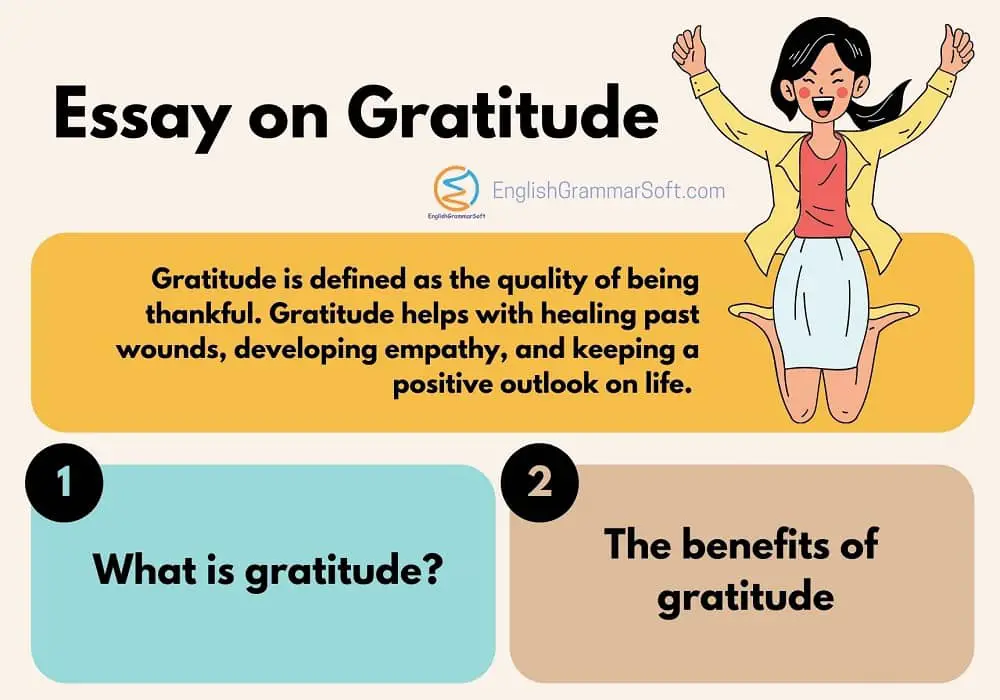
Essay on Gratitude (it brings happiness in life)
Essay on Gratitude
Gratitude is an essential virtue, and it makes people happier. Yet what does gratitude mean? What does it look like? In this essay, I will explore the power of gratitude and how you can cultivate it in your life.
1) What is gratitude?
Gratitude is defined as the quality of being thankful. Gratitude helps with healing past wounds, developing empathy, and keeping a positive outlook on life.
This is because gratitude emphasizes the good in life and fosters an appreciation for what you have. It can also decrease feelings of depression, stress, and anger.
Gratitude also leads to greater personal growth by helping you see your flaws with more clarity. It can even lead to success!
It is a feeling of appreciation, and it can make your life more joyful. It’s about looking for the good in your life rather than focusing on the negative.
It can even be a powerful antidote to stress and depression. You don’t need any special skills to practice gratitude, but you do need to remember these five steps:
- Notice what you’re grateful for
- Think about how it makes you feel
- Express gratitude verbally and mentally
- Practice giving back
2) The benefits of gratitude
When you practice gratitude, you can experience increased self-esteem and resilience. For example, people who are in the habit of expressing gratitude have been shown to have more optimism and can think more optimistically.
Gratitude can improve your physical health because it helps you cope with stress. Studies have shown that gratitude improves your immune system, decreases blood pressure, and boosts happiness levels. You may even be able to live longer just by being grateful!
The positive effects of gratitude can be experienced both psychologically and physiologically. With a grateful mindset, you’ll feel more positive about yourself and life in general. You’ll have increased energy levels, improved sleep, and a stronger immune system.
3) How to practice gratitude in your life
Let’s break down each component of practicing gratitude:
- Observing: “Where I am right now is where I am meant to be.”
- Identifying: “I see that I am now in my body and my body is here for me to learn from.”
- Receiving: “I am taking care of my body with nourishment, exercise and rest.”
- Expressing: “I am learning from this experience and sharing it with others.”
- Practicing: “I am grateful for the opportunity to enjoy my life.”
4) Gratitude makes you happy
Gratitude is an action, not a feeling, and there are scientific studies that prove it. Researchers at the University of California recently found that people who report higher levels of gratitude report feeling happier than those who don’t.
When researchers asked participants to recall some of their happiest memories, those who had more positive memories were more likely to say they felt happy than those who had sad ones.
The benefits of gratitude don’t end there. Regular practice can lead to better relationships and a more positive outlook on life. In a recent poll of more than 3,000 Americans, happiness expert Adam Grant found that many of the people who said they were the happiest had what you might think are positive traits—for example, they were more helpful and forgiving.
5) Practicing gratitude in your work
I believe that some of the best jobs that people can have are teaching others about gratitude and encouraging others to look for the good in their lives.
They can do so by teaching an ethics-based curriculum to teach students how to find the good in their lives.
These teachers do so by focusing on the fact that life has more to offer than bad or unhappiness, and by focusing on what’s good in their lives and how to be grateful for it.
6) Ways To Show Gratitude
You don’t need a lot of money, time, or effort to make your life happier and healthier. Here are different easy ways to start practicing gratitude.
- Notice the good: Let’s start with the easiest place to start — noticing the good things that happen in your life. This is a very simple exercise and it will take less than five minutes a day to notice things. As you do this, you may discover something positive about every day and this will remind you how lucky you are.
- Think about how it makes you feel: Next, stop thinking about how you feel when you observe your blessings. You’ll be practicing gratitude and if you’re thinking about how you feel, you won’t be aware of your blessings.
7) Conclusion
Gratitude is not just feeling happy or lucky to have received something; it’s appreciation and acknowledgment of what you have been given.
Gratitude is a quality that most people see as a positive attribute, but it’s not always easy to live by. Sometimes we can be too embarrassed or shy to share our gratitude with others, or we don’t know how to put into words what we’re grateful for.
It’s important to constantly practice gratitude because it’s a skill we all need to develop if we want to truly be happy in our lives.
Keeping a gratitude journal is a great way to practice gratitude, and if you have an electronic device with a camera, you can take a picture of a leaf and put it in your journal to count your blessings.
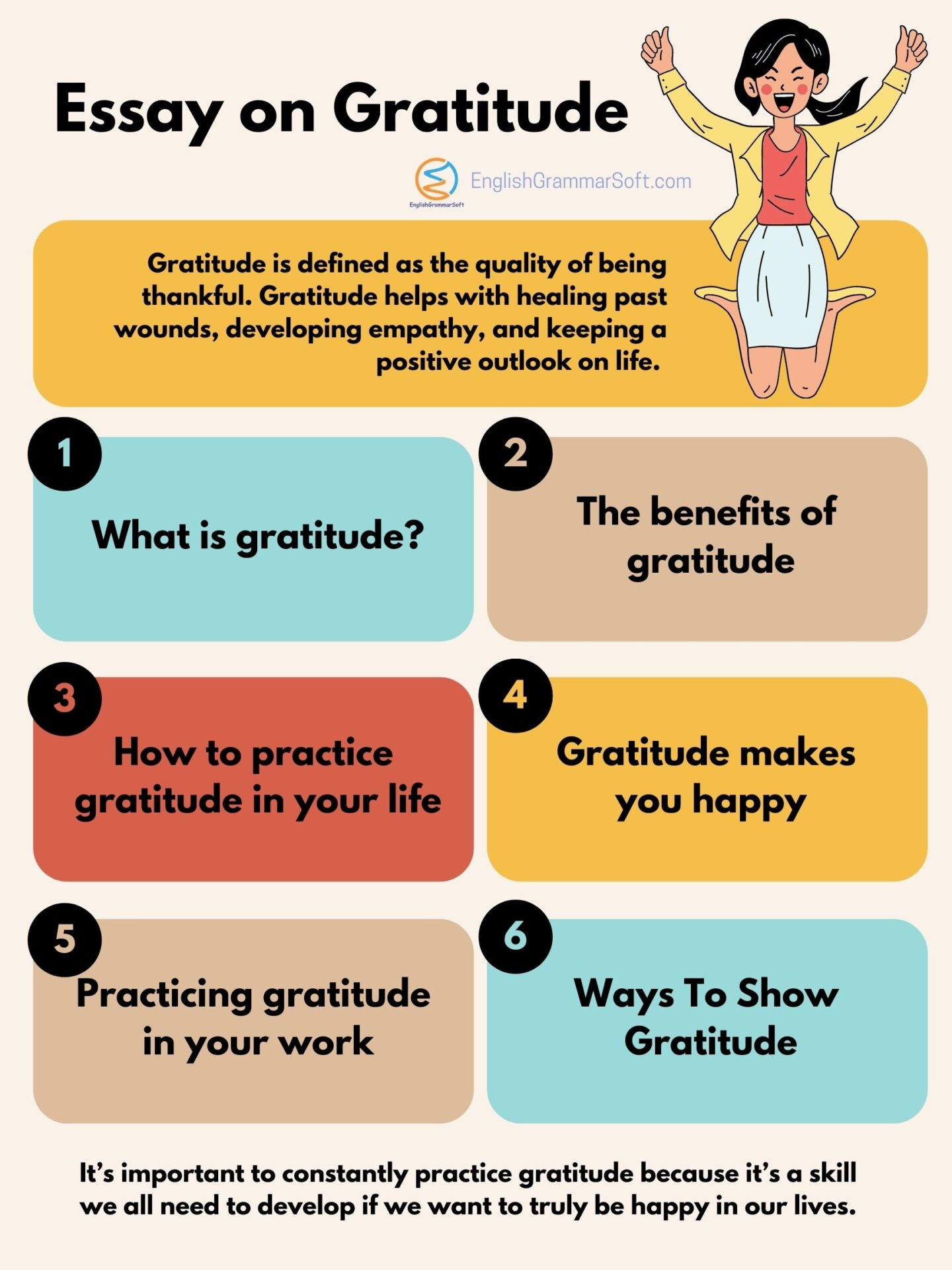
More on essays
- How to Write an Essay | Structure of Essay (Comprehensive Guide)
- Essay on Happiness is a State of Mind
- Essay on Education
- Essay on importance of education
- An Essay on School Life
- Essay on Friendship
- Essay about Anxiety and Stress
- Essay on Time Management
- Essay on 7 Cs of Communication
- Essay on 8 Business Functions
- Essay on Social Media and Its Impact
- Essay on Personality Development
- Essay on Leadership
- Essay on Importance of water in life
- Essay on Pollution
- Essay on Environment Protection
- Essay on Corruption
- Essay on Why Trees are Important in our Life
- 500 Words Essay on Nature in English
- Essay on Global Warming Causes and Effects
- Essay on Deforestation
- Essay on Smoking is bad for health
- A Short Essay on Mothers Day
- Essay on Health is Wealth
Similar Posts
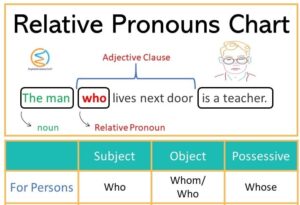
Relative Pronouns Chart and Examples
Relative Pronouns A relative pronoun introduces a clause. It refers to some noun going before and also joins two sentences together. It does the work…

How to avoid distractions while reading? (5 Easy Tips)
Reading is a mental activity. It doesn’t need to be interrupted by noise or distractions. The ability to read well is correlated with overall intelligence….
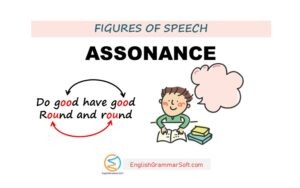
Examples of Assonance in Literature
Assonance The repetition of vowel sounds in words that are close together is called assonance. The sound doesn’t have to be at the beginning of…

Adjective of Number (Examples, List & Worksheet)
Adjective of number shows the definite or indefinite number of a person, thing or place. For example, I have two bikes. It is used with…
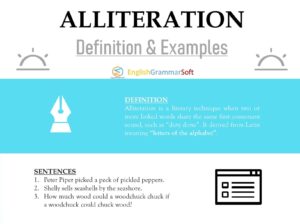
Alliteration Examples in Literature | Alliteration in a Sentence
Alliteration Definition and Examples in Literature In this article, we are going to discuss these points. Definition Alliteration is a literary technique when two or…

Adverb of Time
What is Adverb of Time? Give some examples . An adverb of time modifies a verb, an adjective, another adverb or a sentence. An adverb…
Leave a Reply Cancel reply
Your email address will not be published. Required fields are marked *
Save my name, email, and website in this browser for the next time I comment.

Greater Good Science Center • Magazine • In Action • In Education
Gratitude Is a Survival Skill
Growing up, I never had the chance to offer or reflect on gratitude. It was demanded of me, by force if necessary. If I forgot to say thank you, or I was too slow with my thanks, a smack across the face or a belt to my behind served as a reminder. My mother wanted me to appreciate all the things she did for me.
The effect? I started to not ask for anything. I didn’t ask for help on my homework, I didn’t ask my mother to pass anything to me; I became hyper self-sufficient. I was of the mind that if I asked for anything or forgot to be appropriately thankful, I would receive some kind of painful response.
I can confidently state that this is the reason why I did so poorly from kindergarten to sixth grade: I was deathly afraid if I asked my teachers for any kind of help, they would hurt me. I sometimes have fantasies about my childhood, my asking for help like my classmates did—Who would I be now? Would my dyslexia have been diagnosed earlier than it was? Would I have a better grasp on math? Would I be free of the nagging feeling that I’m not being thankful enough when people do something for me?

Later, in the early ’90s, I worked in a group home that was the stuff of nightmares. Violence, pain, and fear were the default settings of this place. There was a girl there, I’ll call her Sunday. (I’ve changed all the students’ names in this piece.) She made four or five suicide attempts a week. Not self-harming gestures, but full-on attempts to take her life. Her story was so tragic as to be almost unbelievable: Her father used her for sex, as well as pimping her out to his drug-addled friends. Most of the people who hurt her were men. Despite this, she and I became close over our shared love of BritPop and science fiction.
When I quit that job to spend some time out of the country, I lost track of Sunday. In 2004, she called me. It took me a while to remember who she was—I’d worked with lots of youth over the years.
She had a favor to ask. Sunday had completed college, had a job, and was about to get married. Since she didn’t have any contact with her biological family, she asked if I would walk her down the aisle. It had been well over a decade since I’d worked with her, so I agreed—but I wanted to know: Why me?
I was consistent, she told me. I listened to music with her and I gave her books—four photocopied pages at a time because the administration of the group home thought she could harm herself with an entire book. I never gave up on her, Sunday said. This made her feel like she wasn’t broken, that she mattered.
The wedding was beautiful. I’ve cried like that only two other times in my life: when I was married and when my daughter was born. At Sunday’s wedding, I suddenly, fully understood what gratitude was. With this invitation, she acknowledged the impact I had on her life. Not with a cursory thank you, but with action. Her gratitude meant my presence in her life had value. She valued me enough that she trusted me to bear witness to her new self. What I did for her, how I thought about her and interacted with her, made a substantive difference. It was an example I’ll never forget.
Greater Good Chronicles
Sunday also showed me that a mere “thank you” is too easy. Now, if someone shows me kindness, does something for me that transforms me in any way, I try to do more than just say “thank you.” I let them know what their actions mean to me and how I’ve been affected by them. I tell them I’m available and willing to return what they’ve shown me. Not as some kind of tit-for-tat, but to show my radical appreciation for their time and energy spent on me. Her expression of gratitude changed my life and forced me to see the difference between being courteous and thankful and being grateful.
Despite using the terms interchangeably, I see thanks and gratitude as different things. A “thanks” is about courtesy. It is acknowledging that someone has done something for you. I also feel like thankfulness is outwardly focused. I experience it as being transactional. Someone assists you, and your thanks is the receipt of that transaction. ‘Gratitude’ is simultaneously inwardly and outwardly focused. You appreciate what’s been done to or for you, you appreciate the person or thing for providing you with the assistance or experience, and you recognize how the thing has made your life better, even if it is just for a moment. This was what I gleaned from being asked to participate in Sunday’s wedding.
We spend a whole lot of time talking about microaggressions—minute social slights steeped in bigotry and disregard—but we rarely (if ever) talk about the joy and the little microalliances that stem from authentically expressing gratitude. The ways we come together over a mutually beneficial and transformative interaction.
This is why I left adolescent mental health and juvenile justice work after two decades: I found no gratitude in the work. No microalliances. I wasn’t positively moved or motivated by what I was doing. I was on autopilot. I no longer felt effective or energized by the work. I was burned out, compassion-fatigued, just going through the motions. I no longer cared. It was a chore. Instead of being grateful that I was able to do this work, I became resentful. When the emotional return on investment is imbalanced, it is time to go.
I almost immediately fell into another job. Instead of being a frontline worker, I’d be an administrator. Instead of mental health, I’d work in education as the director of an alternative high school of choice. The program that I currently run is a program for students who are behind in high school credits and won’t be able to graduate “on time.” Almost all of the students are people of color, living at or below the poverty line. A large number identify as queer. Many are undocumented. I thought I would be doing different work, but nope. All of my skills working with teens with behavioral and mental health challenges, involved with the justice system, and just dealing with the persistent trauma of adolescence come in handy. In fact, if I didn’t have these skills, I’d never be able to do my job.
I label the program an Etch-A-Sketch: shake it up and begin from scratch. The staff understand that when the students walk through our doors, they are walking into a new life. Starting fresh isn’t just about students doing better in school. It also includes changing the way they view themselves, how they view the world, and how they view themselves in the world. Inviting students to make these changes is the most difficult part of the work. So many of my students are beat down by gentrification (I lose a handful of students each term because their families can no longer afford to live in Oakland, or the immediate Bay Area), tragic loss, sexual violence, community despair. That they even come to school is a feat of resilience that I praise every chance I get. But this whole invitation to change is a process. Asking them questions, listening to their answers, offering options (not advice) have proven to be valuable, especially when done in a group.
More on Gratitude
Learn how gratitude can help you through hard times .
Watch Dr. Jack Kornfield and Brother David Steindl-Rast talk about facing difficulty with gratitude .
Explore why gratitude is so hard for some people .
How grateful are you ? Take our gratitude quiz .
Three years in, my team and I increased the graduation rates, increased term-to-term persistence, and increased in-term retention. When I arrived, the program was considered a failure. Not anymore. We became successful because I started to treat the program more like a group home with a rigorous educational component, and less like a traditional school. Check-ins with students, parental involvement, and more rewards than consequences helped to transform the program from the last resort for students who didn’t do well in traditional high school, to a place where struggling students feel they can restart their stalled education.
I believe we are able to accomplish our gains because of the premium I place on gratitude. Unlike in my house growing up—where gratitude was painfully extracted—I’ve tried to make gratitude become part of our cultural fabric. It began simply with “please” and “thank you.” Then it grew to random rewards for prosocial behaviors. It grew beyond the staff, to even more public displays of student appreciation.
So many of our students are not used to this. For example: School wasn’t Manny’s thing. Never liked it. Before they graduated, they went to almost every high school Oakland had to offer. (Manny identifies as non-binary, which is why I’m using “they” as a pronoun.) In Manny’s admission interview, I reviewed their file with them and set boundaries around how their previous behaviors were unacceptable. I said that I trusted them enough to make safe decisions for themselves and those around them.
They had a rough first month, but at the end of every day when there was no behavioral problem, I expressed my thanks to them for choosing success over things that would hold them back. Manny accused me of insincerity and said I only wanted to “make sure I don’t whoop somebody’s ass.” I admitted that this was part of it. The other part, I stressed, was that I was genuinely grateful they were making decisions to change their behavior for the better. When I told them they did well, it made me feel good and that gave me energy that I could invest in making the program the best it could be for them and their fellow students. “Thank you for making me want to come to work every day,” I told them.
Manny graduated with a 3.5 grade point average, up from .34—and they are now attending a four-year college.
I work with students like Manny one on one, but I also work with them in groups. The groups I facilitate with my students almost always bring about shifts in perspective, if even a tiny bit. But I had a group earlier this year I won’t say broke my heart, but I will say challenged me to recommit to this population because of the sadness I felt.
I sat alone in the circle of chairs. I didn’t say a word, only looked at the nineteen high schoolers who milled about. I made eye contact with some, avoided eye contact with others, but remained silent until my students began to fill the remaining seats. This is how I start every group. I never call a group to order because I don’t want the experience to feel forced. I also don’t want to put any expectations on our time together, so I stay quiet, listen to the scattered conversations, and wait patiently until they are ready to begin. It is their time, and I let them have some control over it. And they know this. So sometimes they take advantage of me and stall, eating up our allotted time until there are only minutes left. This usually happens when there is some kind of incident the students don’t want to talk about, but I am fully aware of. Other times, the students are already in the circle, ready and waiting for me. It is so wildly inconsistent.
In this group, we’ve talked about everything from body integrity and sovereignty, to media representations of race and gender, to why I’ve never smoked, drank, or done any drugs in my life. Nothing is off-topic, as long as it is explored with respect and compassion.
Many students in the group had experienced the loss, to murder, of one of their classmates a year prior. We were right around the anniversary of this death, so I decided to introduce what I thought would be a light topic. “What are you thankful for?” I asked the group. It was like I told a horrible joke, to the wrong crowd, in the wrong room. Complete silence. Even the students who always contributed stayed quiet.
I’m normally really good with silence, but this silence didn’t feel right. I dropped a few more prompts, but nothing. I rephrased the question; still nothing. One of the students began to offer things she liked. I grabbed on to this thread and tried to shoehorn it into a conversation about gratitude. I wasn’t that skilled. Another student became upset and launched into, “Thankful for what? For being poor, my brother in jail, my mom working all kinds of jobs?” I validated the student, then pressed: “You’re here. You’re trying to change your life, right?” He countered: “Why would I be thankful for something I’m doing to better myself? Ain’t nobody helping me.” Many of the students nodded or murmured in agreement.
I felt so sad and defeated. The words stung because of their familiarity. I understood why the student felt that way and why the others agreed. The world, their world, is a hard place to live. When everything appears to be conspiring to impede your progress, then despair, resentment, and retaliation seem to be the only options. I was hurt because I could empathize and I was ashamed of how easy it was for me to do so. My trauma is still pretty close to the surface. How could I get it so right with my staff, but so damn wrong with my students? If these students couldn’t express gratitude, what kind of lives would they live? Gratitude relates to kindness and a mutuality of kindness, and this was something my students lacked: kindness done to them, and the ability to be kind without conditions. And I don’t blame them. They live in worlds where the “I” is the most important thing. Where getting yours is the only way they can get anything. This didn’t make it any less sad and painful.
After several more minutes of profoundly awkward silence, I adjourned the group and immediately went to my office and called members of what I call my brain trust to process what just happened. I think this experience affected me so deeply because I was forced to realize how gratitude, no matter how hard I’m working on it, still isn’t my strong suit. I try, but I fall short more than I like. I saw my younger self in all of them.

Gratitude Letter
Write a letter to someone you've never properly thanked
This was something I wanted my daughter to never have to unlearn. I didn’t want her youth to be as miserable as mine. From a young age, gratitude was introduced as a factor in my daughter’s life. After she was born, my wife and I modeled “please” and “thank you.” When she was older, we’d sing, “You get what you get, and you don’t throw a fit,” to invite her to be appreciative of what she had and who spent time with her. If she forgot, we’d have a conversation with her about why. At age ten, she has such a developed and sophisticated and nuanced expression of gratitude that I learn from her every day. Most mornings we set a goal or two for the day. When we see each other in the evenings, we discuss if she achieved her goals. If so, we talk about what she did to make it happen. If not, we discuss barriers and ways she can take different actions to get her desired result. She also has a gratitude jar on her desk. She writes down what she’s grateful for and puts it in the jar. At the end of the week, she opens the jar and reflects on all the things she was grateful for.
My daughter has two parents, and we’re raising her in an emotionally and financially stable household of relative privilege. How many marginalized and disproportionately impacted people are getting lessons, being trained in gratitude? I don’t see it as a luxury. I see gratitude as a survival skill. The ability to appreciate and to recognize the good and be thankful for it helps to heave off the weight of the things that are determined to hold us back, to hold us down. Being able to look at the world from a place of interconnectedness is powerful. Knowing that your actions and words mean something to someone, that you matter to someone—as Sunday expressed to me—instills a perspective, a momentum, that invites us to participate in the world in a way that emphasizes cooperation and connection. It allows us to re-envision ourselves, re-envision the world, and re-envision our relationship with the world. To use a very cliched phrase: We’re all we got.
About the Author

Shawn Taylor
Shawn Taylor is a writer, university lecturer, and trainer for behavioral health workers. He has spent more than 20 years working at the intersection of juvenile justice and adolescent mental health. Currently, he is the director of an education program that serves disproportionately impacted high school students in a college setting.
You May Also Enjoy
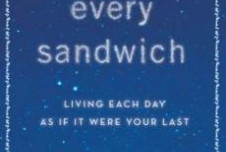
The Grateful Dead

Can Gratitude Help Couples Through Hard Times?

Can Losing a Loved One Make You More Grateful?

How to Practice Radical Gratitude

Six Habits of Highly Grateful People

Death and Gratitude
Letters of Gratitude: How to Write a Message of Appreciation

And it’s no surprise. After all, many of our positive emotions–joy, hope, optimism, and contentment–have appreciation or gratitude in common. And together, they, and others, foster the right conditions for living the ‘good life’ (Seligman, 2011).
Most importantly, gratitude is not fixed. It is a practice we can learn and build upon, something that becomes an integral part of who we are and how we live.
In this article, we explore the value of sending messages of gratitude and introduce guidance and templates to help.
Before you continue, we thought you might like to download our three Gratitude Exercises for free . These detailed, science-based exercises will help you or your clients connect to more positive emotions and enjoy the benefits of gratitude.
This Article Contains
What are gratitude messages, how to write a gratitude letter, the impact of sharing appreciation messages, writing gratitude cards, 20 inspiring gratitude and appreciation statements.
- Positive Psychology & Gratitude Letter Writing
Gratitude Resources from PositivePsychology.com
A take-home message, frequently asked questions.
“[G]ratitude makes us appreciate the value of something, and when we appreciate the value of something, we extract more benefits from it; we’re less likely to take it for granted,” says Robert Emmons, professor of psychology and gratitude expert at the University of California (cited in Brown, 2021, p. 213).
With gratitude, we become greater participants in our lives, celebrating goodness rather than reacting to it. And what’s more, it’s not passive; it’s something we can invest in and grow, letting it positively impact our relationships and environment (Seligman, 2011; Brown, 2021).
As such, gratitude is a “way of doing, trying, failing, and trying again,” says author and research professor Brené Brown (Brown, 2021, p. 214). We can learn to be equally gracious to ourselves and others and accept that we are a work in progress, attempting to act with gratitude in our daily lives.
But how do you show your gratitude?
Strength expert Ryan Niemiec describes gratitude as when you “regularly experience and express thankfulness,” “don’t take the good things that happen in your life for granted,” and “tend to feel blessed in many circumstances” (Niemiec, 2019, p. 10).
For Professor Martin Seligman (2011), one of the founders of positive psychology, gratitude is enduring thankfulness, with messages of gratitude being expressed to someone that we appreciate as helping or positively influencing our lives and yet have never been properly thanked. It could be as simple as a text message or note given to a friend saying thanks for always being there or a colleague for helping you out of a tight spot.

Because of the many responses he received from the homework and a wealth of findings from controlled studies, he identified that “not only did the writer’s happiness scores go up, their scores on depression were lowered for at least a month following the exercise” (Tomasulo, 2020, p. 129).
While there are several activities surrounding gratitude, letter writing is one of the most commonly researched and validated. And while its positive effect on gratitude, happiness, and wellbeing are profound, it can be summarized by the following three steps (modified from Niemiec, 2018; Seligman, 2011):
- Step one – take a moment to think about someone who has positively impacted your life (whether in the short or long term) that you appreciate, yet may not have thanked properly.
- Step two – write that person a letter describing how you feel about what they have done for you and why you are grateful to them. Seligman describes it as follows, it “should be concrete and about three hundred words: be specific” and mention how often you remember what they did (Seligman, 2011, p. 30).
Rather than a simple thank you for being there, it is best to create a narrative. It may help to reflect on the following questions (modified from Intelligent Change, n.d.):
How and when did you both meet? What are your earliest memories of your relationship? How was your life at the time? What has that person done for you? How did that make you feel then and now? What do they mean to you?
- Step three – while this may not always be an option-or at times the right thing to do-Seligman suggests you take time reading the letter and watch for the other person’s reactions and your own. And then, when finished, discuss the content with them (Seligman, 2011).
Niemiec (2018) points out that the three steps involve more than the strength, or process of, gratitude alone. Writing and sharing gratitude letters engages other character strengths, such as love, perspective, and social intelligence . And undoubtedly, delivering and reading your letter to that person requires bravery and zest .
Writing such a letter is almost always a valuable exercise, increasing gratitude and other positive emotions. However, we cannot guarantee the response the letter receives. There may be occasions when the activity should finish at step two due to safety issues or the risk of unwanted consequences (Niemiec, 2018).
A gratitude letter to a boss
Whether recently or in our earlier careers, we typically remember those bosses that supported us along our professional path or as we faced difficult times in our personal lives.
Treat the following example as a possible template for use in writing a gratitude letter to your boss (past or present). The details, thoughts, and emotions can be added to, removed, swapped around, or embellished upon as appropriate (modified from Hamadey, 2020).
Dear [first name]
I’ve been looking back on all stages of my career and thinking of people who made an impact. You are very high up on the list.
I loved working alongside you at [company name] and felt like your talent, experience, work ethic, and creative ideas lifted me up.
You gave me priceless advice that helped me progress through my career.
When my mother was taken ill, you gave me the time I needed to support my family and get back on my feet.
You continue to have my back and offer great advice, referrals, etc.
In short, your guidance and support helped me along my career path, and I’m grateful to you.
Kindest regards
[Your full name]
As you read through what you have written, consider the feelings that rise up inside you and how the recipient will feel reading your letter.
A gratitude letter to parents

Sending a letter to parents can be a great way of capturing our feelings and sharing our appreciation for them. More personal than the last example, reflect, reuse, and modify some of the following points to capture how you feel about them (modified from Psaila, 2020):
Thank you for:
- Laughing with me through my joy
- Crying with me through my pain
- Taking my sadness and making it your own
- Easing each and every burden
- Sharing my tears with me
- Your beautiful way of living life
- Having the absolute kindest heart
- Teaching me what being a good person truly means
- Showing me what unconditional love truly means.
An example might be as follows (modified from MailToSelf, n.d.):
Dear Mum and Dad,
I have been meaning to write this letter for some time. I wanted to thank you for everything you have done for me. You gave me the best possible start in life, supporting me through school and college and helping me through some tough times since. You have always prioritized my needs and shared both tears and laughter.
Thank you for always supporting me and encouraging me to do my best in life. There will never be enough words to convey how much you both mean to me and how grateful I am for you both showing me what unconditional love truly means.
I love you so much, today, and forever.
Yours lovingly
[Your name]
A gratitude letter to a friend
Our close friends deserve our highest gratitude. They are there when we most need them and can be as close as family – and sometimes more so. While similar to family letters, they may seem more lighthearted and less formal – depending on how you relate to each person, for example (modified from Mayne, 2020):
Dear [friend’s first name]
Friends like you come along once in a lifetime.
I just want you to know how much I appreciate you and your friendship. Whenever I see something that makes me laugh, I want you to be the first to know. It’s wonderful to know that you care enough to stick by my side through the good times and the bad.
You will always be close to my heart!
Love, [Your name]
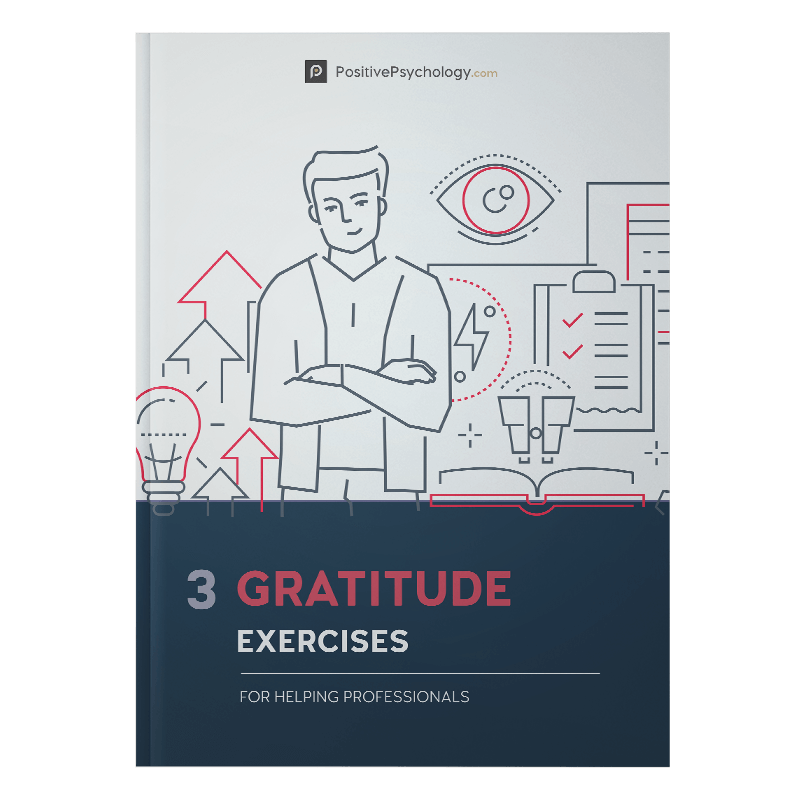
Download 3 Free Gratitude Exercises (PDF)
These detailed, science-based exercises will equip you or your clients with tools to build daily gratitude habits, express more appreciation toward others, and experience more positive emotions in everyday life.
Download Download 3 Gratitude Tools (PDF)
By filling out your name and email address below.
- Email Address *
- Your Expertise * Your expertise Therapy Coaching Education Counseling Business Healthcare Other
- Comments This field is for validation purposes and should be left unchanged.
In all its forms, showing gratitude and messages of appreciation should ultimately be unburdening, focusing on positive emotions, memories, and thoughts rather than any wrongdoings (Tomasulo, 2020).
Identifying and using the strength of gratitude, has important valuable associations with other mental and physical factors, including (modified from Niemiec, 2018, p. 12):
- Life satisfaction
- Prosocial behavior
- Increased cardiovascular and immune functioning
- Lower levels of anxiety and depression
- Kindness and compassion
Gratitude–both as a strength and an emotion–can be boosted easily with practice. Indeed, gratitude letter writing is so beneficial because research has shown it promotes gratitude, encourages the appreciation of others in your life, and strengthens relationships (Niemiec, 2018).
While writing gratitude letters is an inherently valuable gratitude exercise for both the sender and the receiver, shorter notes (even electronic ones) and cards can be equally powerful. Signature strengths expert, Ryan Niemiec, suggests that you “share your appreciation on a post-it note that you put on someone’s desk as a surprise or send it in a spontaneous email” (Niemiec, 2018, p. 42).
Cards or notes sharing gratitude can be brief – they simply need to be honest and heartfelt. Indeed, it is not necessary to describe everything the person has done for us; it could just be a few sentences as a reminder of when their impact was the greatest and how it made us feel.
Also, while we should try to adopt timely appreciation, there is no statute of limitations on gratitude. A teacher will still be overjoyed to receive a note of thanks from a student from twenty years ago (Hamadey, 2020).

The following statements may offer some helpful prompts (Bowlby, 2021; Shutterfly Community, 2022; Berries.com, 2022):
- Thank you for being the reason I smile.
- Thank you for being you.
- Thank you for brightening my world.
- You’ve always believed in me. Thank you!
- Thank you for being an important part of my story.
- I can’t even begin to explain how much your help means to me.
- Thank you for making so many ordinary moments, extraordinary.
- Thank you for always giving me the extra push I needed.
- Your friendship is a special gift. Generously given, happily accepted, and deeply appreciated!
- Where would I be without a friend like you?
- You are a ray of sunshine to me and everyone else around. Thank you for brightening my day!
Particularly for parents
- Thanks for never asking for reasons or explanations when all I wanted was a long hug and a few laughs.
- Thank you for letting me grow my own wings, for letting me fly, for catching me when I fall, for letting me stand when I can’t, and for assuring me I can fly again.
- Thank you for being my heart’s first home. I love you.
- Thank you for always being there for me. Not just when I needed you, but for when I needed you most.
Boss or colleague
- Thank you for having confidence in my abilities.
- Thank you for being such an inspiration to me and others around you.
- Thank you for leading by example.
- I want to express my gratitude for everything you’ve helped me achieve here.
- Thank you for always going above and beyond to ensure the success of a project.
Positive Psychology & Gratitude Letter Writing
Positive psychology recognizes the importance of relationships. In fact, make up the ‘R’ in Martin Seligman’s model of wellbeing, ‘PERMA’ – the others being positive emotions, engagement, meaningful living, and achievement or accomplishment (Seligman, 2011).
For relationships to be at their best, it is helpful to refocus positively–and with appreciation–on their past, present, and future, especially when going through a tough time. After all, while our relationships have the power to boost wellbeing and increase happiness, they are also “a major part of the cause for people to slip into depression” (Tomasulo, 2020, p. 128). Gratitude can help develop new relationships and maintain existing ones.
Not only that, in a 2005 study, Seligman compared writing gratitude letters with other positive psychological interventions and found they offered the greatest initial increase of happiness.
While gratitude may not cure mental illness, it is a vital, life-enhancing emotion and a practice that can enrich our lives in meaningful ways (Brown, 2021).
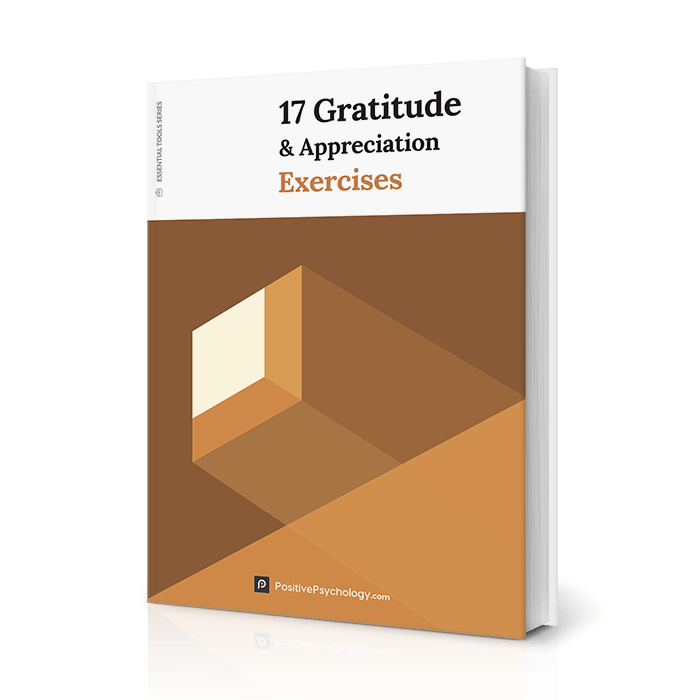
17 Exercises To Nurture Gratitude & Appreciation
Empower others with more hope, satisfaction, and fulfilling relationships with these 17 Gratitude & Appreciation Exercises [PDF] that harness the powerful benefits of gratitude.
Created by Experts. 100% Science-based.
We have many resources available to foster gratitude as an emotion and a strength by improving our skills at increasing and showing our appreciation for others:
Why not download our free Three Gratitude Exercises Pack and try out the powerful tools contained within, including:
- Step one – identify everyday activities that bring pleasure
- Step two – experience pleasure as it happens by aiming to savor two activities a day for two weeks.
- Step three – reflect on how the savoring rituals went.
- Step 1: Recall a recent awe experience
- Step 2: Describe the awe experience
- (Optional) Step 3: Create an awe diary
Reliving awe moments allows us to re-experience some of the positivity they initially evoked in us. Taking a moment to document awe moments encourages us to savor and enjoy the experience for a little longer and store and recall the memory to re-enjoy positive emotions in the future.
Other free resources include:
- Gratitude journal Use the Gratitude Journal to list people and events to be grateful for and reflect on the best part of each day.
- Gratitude gifts A delightful drawing task for children to capture on paper things they are grateful for in their lives.
More extensive versions of the following tools are available with a subscription to the Positive Psychology Toolkit© , but they are described briefly below:
- Replacing Non-Grateful Thoughts With Grateful Thoughts While gratitude is a basic human emotion, ungratefulness has been described as the solvent of social bonds and an assault on flourishing human life (Mikoski, 2011).
The following steps can help the client replace thoughts of ingratitude:
- Step one – identify an ungrateful thought
- Step two – formulate a grateful alternative
- Step three – replace the ungrateful thought with the grateful one
- Step four – translate the positive feelings that arise into action.
- Daily Gratitude Check-In
Gratitude is the process of (1) acknowledging that one has achieved a positive outcome and (2) recognizing an external source contributed to this positive outcome (Emmons & McCullough, 2003).
This brief ‘check-in’ helps the client connect to their feelings of gratitude. After all, gratitude is more than knowing what you are thankful for; it is also an experience.
If you’re looking for more science-based ways to help others harness the benefits of gratitude, this collection contains 17 validated gratitude tools for practitioners. Use them to help others shift to a more positive mindset and experience the joys of life more deeply.
Gratitude is an emotion, strength, and practice, and it helps us appreciate the value of something. As such, it is something we can learn and build upon, ultimately becoming integral to who we are and our positive relationships with the people and world around us.
To experience gratitude, we must regularly experience and express thankfulness and not take the good things in our lives for granted.
Writing gratitude letters promotes enduring thankfulness, sharing appreciation with those that have positively influenced our lives and yet may have never been properly thanked. Such notes include our feelings towards the recipient, acknowledging what they have done and how they have supported us.
And yet gratitude can be kept brief. It is not necessary to describe everything the person has done, but serves as a reminder of when their impact was the greatest and how it made us feel. Also, while we should try to adopt timely appreciation, there is no statute of limitations on gratitude.
Gratitude letters can help develop new relationships, maintain existing ones, and increase happiness and wellbeing and are a valuable tool for the therapist working with a client or as a standalone practice for self-development.
We hope you enjoyed reading this article. Don’t forget to download our three Gratitude Exercises for free .
Ed: Updated August 2022
To say thank you meaningfully, start by expressing genuine gratitude and appreciation towards the person or people you are addressing. Be specific and mention the things they have done for you and how it has made a difference in your life.
The best thank-you message is one that is genuine, specific, and heartfelt.
Start by expressing your gratitude and appreciation towards the person or people you are addressing, then mention the specific things they did for you that you are thankful for.
Finally, end the message with another thank you and well wishes for the person’s continued happiness and success.
- Thank you for always being a dependable and supportive partner. Your loyalty and kindness mean the world to me.
- I am very grateful for the moments of joy and laughter you bring into my life.
- Algoe, S. B., Gable, S. L., & Maisel, N. C. (2010). It’s the little things: Everyday gratitude as a booster shot for romantic relationships. Personal Relationships, 17(2) , 217-233.
- Berries.com. (2022). 85 ways to say thank you + printables for your message . Retrieved August 5, 2022, from https://www.berries.com/blog/ways-to-say-thank-you
- Bowlby, K. (2021). 45 quotes that Perfectly Express How Thankful You Are . Retrieved August 5, 2022, from https://www.countryliving.com/life/g29536898/thankful-quotes/
- Brown, B. (2021). Atlas of the heart . London: Vermilion.
- Emmons, R. A., & McCullough, M. E. (2003). Counting blessings versus burdens: An experimental investigation of gratitude and subjective well-being in daily life. Journal of Personality and Social Psychology , 84, 377-389.
- Hamadey, G. (2020). How to write a gratitude letter-plus a sample letter of gratitude . Retrieved August 4, 2022, from https://www.ginahamadey.com/blog/howtowriteagratitudeletter
- Intelligent Change. (n.d.). How to write a gratitude letter to a friend or a loved one . Retrieved August 4, 2022, from https://www.intelligentchange.com/blogs/read/how-to-write-a-gratitude-letter
- MailToSelf.com (n.d.) Thank you letter to mom and dad . Retrieved August 5, 2022, from https://www.mailtoself.com/thank-you/thank-you-letter-to-mom-and-dad/
- Mayne, D. (2020). Thank You Note Ideas for Friendship . Retrieved August 4, 2022, from https://www.thespruce.com/thank-you-note-samples-for-friendship-1216785
- Mikoski, G.S. (2011). On gratitude. Theology Today , 67, 387-390.
- Niemiec, R. M. (2018). Character strengths interventions: A field guide for Practitioners . Boston: Hogrefe.
- Niemiec, R. (2019). Strengths-based workbook for stress relief: A character strengths approach to finding calm in… the chaos of daily life . Oakland: New Harbinger Publications.
- Psaila, F. (2020). A thank you letter for my parents . Retrieved August 5, 2022, from https://thoughtcatalog.com/francesca-psaila/2020/04/a-thank-you-letter-for-my-parents/
- Seligman, M. (2011). Flourish: A new understanding of happiness and well-being and how to achieve them . London: Nicholas Brealey Publishing.
- Shutterfly Community. (2022). The best thank you quotes and sayings for 2022: Shutterfly . Retrieved August 5, 2022, from https://www.shutterfly.com/ideas/thank-you-quotes/
- Tomasulo, D. (2020). Learned hopefulness: The power of positivity to overcome depression . Oakland: New Harbinger.
Share this article:
Article feedback
What our readers think.
Thank you for your tips. I have been wanting to write about my physiotherapist in a long time but could not put into words of what a wonderful person he is.
As someone who is passionate about the topics you cover, I’ve found your website to be an invaluable resource.
Thank you for sharing this amazing blog that was of great help to me and I decided to follow each word in it
Let us know your thoughts Cancel reply
Your email address will not be published.
Save my name, email, and website in this browser for the next time I comment.
Related articles

30 Best Journaling Prompts for Improving Mental Health
In our vast arsenal of therapeutic strategies, using journal prompts for self-reflection can be a powerful practice that bridges the therapeutic space and the client’s [...]

11 Best Gratitude Apps to Increase Your Wellbeing
Traditionally, the end of the year is a time of reflection and gratitude. It is a time to say thank you on Thanksgiving Day, a [...]

The Gratitude Journal: Prompts, PDFs, and Worksheets
The act of gratitude plays an important role in psychological wellbeing and self-actualization (Maslow, 1981). Regular expression of gratitude leads to increased feelings of happiness [...]
Read other articles by their category
- Body & Brain (49)
- Coaching & Application (58)
- Compassion (25)
- Counseling (51)
- Emotional Intelligence (23)
- Gratitude (18)
- Grief & Bereavement (21)
- Happiness & SWB (40)
- Meaning & Values (26)
- Meditation (20)
- Mindfulness (44)
- Motivation & Goals (45)
- Optimism & Mindset (34)
- Positive CBT (30)
- Positive Communication (20)
- Positive Education (47)
- Positive Emotions (32)
- Positive Leadership (19)
- Positive Parenting (15)
- Positive Psychology (34)
- Positive Workplace (37)
- Productivity (17)
- Relationships (43)
- Resilience & Coping (37)
- Self Awareness (21)
- Self Esteem (38)
- Strengths & Virtues (32)
- Stress & Burnout Prevention (34)
- Theory & Books (46)
- Therapy Exercises (37)
- Types of Therapy (64)
3 Gratitude Exercises Pack

IMAGES
VIDEO
COMMENTS
5. Values and Gratitude. Exercising gratitude trains us to establish positive values such as enthusiasm and optimism. Use this prompt to identify and discuss the values one can gain from learning about gratitude. Discuss the values you developed while practicing gratitude to make your essay relatable.
FAQ of Gratitude Essay. Question 1: Why is gratitude important? Answer 1: Gratitude is strongly and constantly connected with greater happiness. It is what helps people feel more positive emotions, appreciate good experiences, advance their health, deal with adversity, and build strong relationships.
Being grateful makes you count your blessings and makes you feel good. 3. Feel And Express Gratitude by Dr. Hyder Zahed. "For, whatever you genuinely feel grateful for, you will have multiply in your life. Think about it, if you gave a gift to another and that person told you, 'I am so grateful for the gift.
The essence of gratitude is both timeless and ever-relevant, reminding us that amidst life's challenges and complexities, the act of appreciating the present moment and expressing thankfulness holds the key to unlocking a life of greater meaning, fulfillment, and connection. This essay was reviewed by. Dr. Oliver Johnson.
Overall, an essay on gratitude can be a powerful tool for personal growth and reflection. By exploring gratitude in your life, you'll be able to recognize the good things that are often overlooked and find ways to cultivate more gratitude in your daily life. Use the gratitude essay examples and tips above to craft a perfect essay on gratitude ...
2. Gratitude blocks toxic, negative emotions, such as envy, resentment, regret—emotions that can destroy our happiness.There's even recent evidence, including a 2008 study by psychologist Alex Wood in the Journal of Research in Personality, showing that gratitude can reduce the frequency and duration of episodes of depression.. This makes sense: You cannot feel envious and grateful at the ...
Common Application Essay Option 4—Gratitude. Tips and Strategies for the 2021-22 Common App. One major change to the Common Application in the 2021-22 admissions cycle is the addition of a new essay prompt. Option #4 now reads, "Reflect on something that someone has done for you that has made you happy or thankful in a surprising way.
What Is Gratitude? Robert Emmons, perhaps the world's leading scientific expert on gratitude, argues that gratitude has two key components, which he describes in a Greater Good essay, " Why Gratitude Is Good .". "First," he writes, "it's an affirmation of goodness. We affirm that there are good things in the world, gifts and ...
In the face of brokenness, gratitude has the power to heal. In the face of despair, gratitude has the power to bring hope. In other words, gratitude can help us cope with hard times. Don't get me wrong. I am not suggesting that gratitude will come easily or naturally in a crisis. It's easy to feel grateful for the good things.
Gratitude is a feeling of appreciation or thanks. It is defined as "a sense of thankfulness and joy in response to receiving a gift, whether the gift is a tangible benefit from a specific other or a moment of peaceful bliss evoked by natural beauty". With gratitude, people acknowledge the goodness in their lives.
This shift can lead to greater emotional well-being, improved relationships, and a more fulfilling life. Therefore, gratitude is not just a courtesy or an act of good manners, but a key to a happier and healthier life. 500 Words Essay on Gratitude The Power of Gratitude. Gratitude is a powerful emotion that can significantly shape our lives.
Gratitude has been found to be beneficially associated with social wellbeing, emotional wellbeing, and psychological wellbeing (Jans-Beken et al., 2020). It is no surprise that trait gratitude is an important "predictor of wellbeing and other desirable life outcomes" (Portocarrero et al., 2020, p. 6).
What Makes a Good Gratitude Essay Topics. When it comes to writing an essay about gratitude, choosing the right topic is crucial. A good gratitude essay topic should be thought-provoking, engaging, and unique. It should inspire the writer to delve into their personal experiences and perspective on gratitude, while also sparking interest in the ...
Robert Emmons, perhaps the world's leading scientific expert on gratitude, argues that gratitude has two key components, which he describes in a Greater Good essay, "Why Gratitude Is Good." "First," he writes, "it's an affirmation of goodness. We affirm that there are good things in the world, gifts and benefits we've received."
Express your artistic side. "I paint small watercolors and write a note on the reverse," said Owen Harvey, 49, from Kingston, N.Y. Then he mails them to a friend or family member. Mr. Harvey ...
Gratitude is a positive emotion that can arise when you acknowledge that you have goodness in your life and that other people — or higher powers, if you believe in them — have helped you ...
Gratitude Essay 1 (100 words) Gratitude is the rare jewel that graces our lives with a warm glow, signifying our appreciation for the gifts we receive daily. An essential virtue is the magical thread that binds us to the universe and its many wonders. The purest form of acknowledgment, gratitude, can transform our outlook on life.
Gratitude is defined as the quality of being thankful. Gratitude helps with healing past wounds, developing empathy, and keeping a positive outlook on life. This is because gratitude emphasizes the good in life and fosters an appreciation for what you have. It can also decrease feelings of depression, stress, and anger.
Gratitude is the recognition that life owes me nothing and all the good I have is a gift. It is not a getting of what we are entitled to. My eyes are a gift. So is my wife, my freedom, my job, and my every breath. Recognizing that everything good in life is ultimately a gift is a fundamental truth of reality.
Gratitude and happiness are more than just mental states. We review some science-based research into each of these psychological concepts. ... The nuns were unaware that their essays would be analyzed for a happiness and longevity study. The researchers found that, about 50 some years later, 90% of the happiest nuns lived past 85 (years old ...
I see gratitude as a survival skill. The ability to appreciate and to recognize the good and be thankful for it helps to heave off the weight of the things that are determined to hold us back, to hold us down. Being able to look at the world from a place of interconnectedness is powerful.
Writing Gratitude Cards. While writing gratitude letters is an inherently valuable gratitude exercise for both the sender and the receiver, shorter notes (even electronic ones) and cards can be equally powerful. Signature strengths expert, Ryan Niemiec, suggests that you "share your appreciation on a post-it note that you put on someone's desk as a surprise or send it in a spontaneous ...